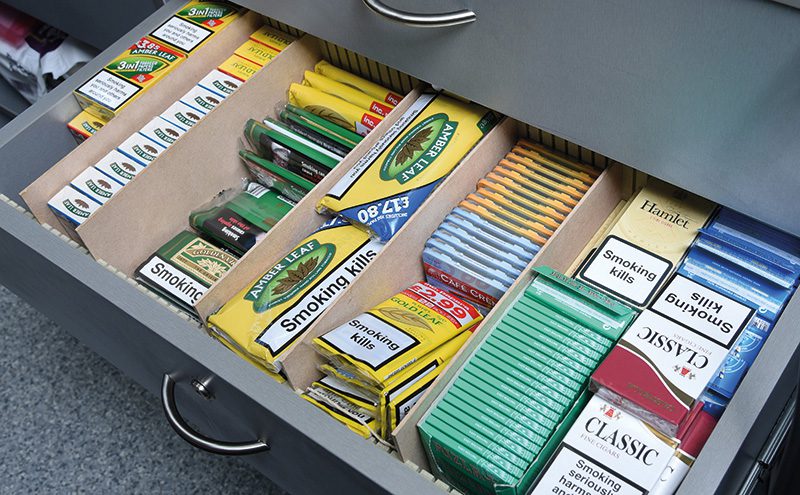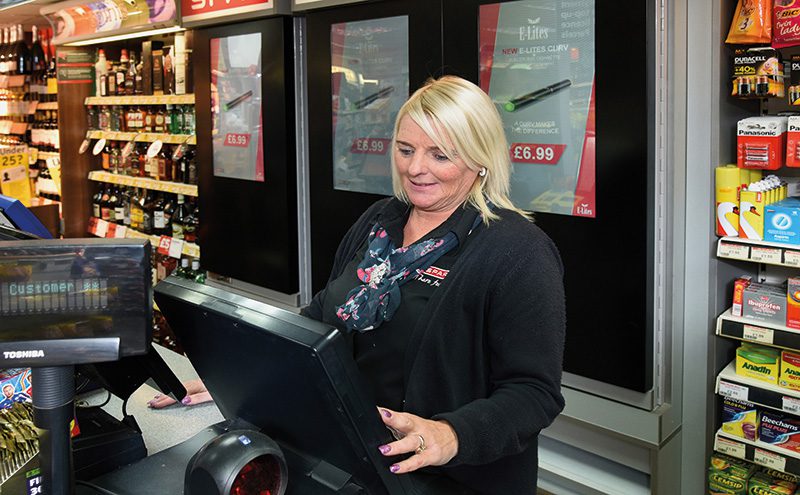Small packs enter their final year and plain packs move closer. What happens now and what decisions do retailers have to make?
It isn’t unusual in promotions in any product category to see or hear the term “While stocks last”. But tobacco retailers are hearing it about the entire category. We’ve now entered the final year when stock produced before last month’s EU Tobacco Products Directive 2’s manufacturing ban on pack sizes of less than 20 cigarettes, and of less than 30g of RYO tobacco, can be sold through wholesale and retail channels. And, even though legal challenges look set to continue, it looks increasingly likely that in the UK come 20 May 2017 cigarettes and tobacco will only be allowed to be sold in standardised packaging – so no brand colours or logos and no more PMPs.

It means retailers face a series of issues.
Later in this feature we’ll look at what some of the main tobacco companies are doing to advise and reassure their customers. But even with that advice there are still questions that retailers have to ask themselves.
One of the first is “Do I stock up on extra supplies of small packs and PMPs?”
In the past, convenience stores have been found to have strong sales of 10-packs and in recent years pack sizes of 17 or 18 sticks have been used to hit competitive PMP price points in economy cigarette segments of the market. They have grown to account for a large proportion of cigarette sales in many c-stores. Similarly, c-stores often stock a raft of small RYO pack sizes.
Retailers will have to try to gauge when their own supplier is likely to run out of the packs and then decide whether they want to buy more than usual to give themselves more days or weeks of small pack and PMP availability. At the same time they will want to avoid paying out for extra tobacco stocks and will have to ensure they are not left with non-compliant stock at the retail deadline of 20 May 2017.

Different retailers have different outlooks. At Family Shopper in Motherwell (featured in our award winner profile on page 22 of this issue) director Adeil Hussain told Scottish Grocer that he does have concerns about the effect the disappearance of small packs and PMPs will have on some of his customers particularly on RYO.
“People who aren’t affluent, who don’t have the money to buy large quantities of things at the one time, who don’t do weekly shopping are going to find it an issue,” he said.
“At this moment I don’t see what they’ll do. They won’t have another option.”
He doesn’t think he will buy extra stock to try to extend his availability of small packs but he does intend to keep customers well-informed about the changes through direct conversations and through social media like Facebook. “I’ve started to make customers aware that the government requires the manufacturers to stop making 17s and 18s and that tobacco will be 30g,” he explained.
“I’ve said, you have to know that in the coming months we will start running out. But that’s not because we’re being lazy or the cash and carry isn’t bothering. It’s because they don’t have them.”
He said he had heard other retailers at his cash and carry saying they did intend to buy extra stock but he won’t be doing so.
“I can’t see why you would want to do that. It ties up money, your cash flow would be all over the place.”
But given the likelihood of plain packs being introduced some retailers do intend to make as much use as possible of PMPs while they still can.
As reported last issue, north-east Scotland Nisa stores retailer Sid Ali has gone back to stocking PMPs where possible.

And he has done so with an eventual enforcement of standardised packs in mind.
“After going dark, we got rid of all PMPs, then we brought back the top three sellers,” he said.
“Now pending plain packaging implementation, we’ve decided to put everything back in PMPs.
“We’re trying to buy loyalty. We want people who have been buying with us for the last six months before plain packaging comes in.”
At the Adam Purves Premier store in Galashiels, in the Borders, store manager Richard Garrie explained that the firm had also extended its PMP range while such packs are still available. “I’ve turned around on price-marked tobacco,” he said.
“We’re 80% price-marked. Come next year there won’t be any PMPs at all, so I thought we’d run them for a year to build the trade up.”
The Galashiels store might also be an outlet that’s in at the start of another c-store trend, if plain packs are indeed implemented.
There’s no tobacco gantry at the small shop, tobacco is under the counter.
“When I got my licence through, I knew space was going to be tight, so I designated the area behind the counter to spirits. I’ve got four locking drawers for tobacco, which work really well. It was a bit slow at first, because you’ve nothing to advertise the fact that you sell tobacco, but word of mouth gets around and people know now.”
Other retailers, including Omar Nasir at his Spar Leven Street store in Motherwell, have opted for automated vending systems. He sees it as an efficient way to dispense products and it gives him cabinets that he can use to display advertising and promotional materials.
In a plain pack regime, which could effectively be with us in less than a year, retailers will have to work out ways to store, retrieve and retail tobacco products that look almost identical. Automated systems could become very interesting.


















